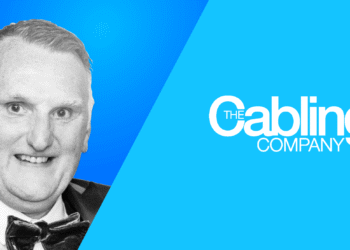Over the past 10 years, the way in which we consume technology services has rapidly evolved to a landscape of well-established, subscription-based pricing models that have now become the de facto choice for most businesses. This consumer behaviour comes as no surprise, as the way in which we manage our personal finances is also dominated by subscription-based contracts, whether that be our mobile phone, Netflix account or Ring doorbell.
The advantages of subscription-based models enable businesses to spread their operational expenditure (OpEx) costs over a defined period, reducing the need for lumpy and difficult to forecast capital expenditure (CapEx). After all, who goes out and pays £1,500 upfront for their iPhone when they can spread the cost of the phone and data via a subscription-based contract.
Taking an OpEx approach also allows firms to monitor trends and past expense patterns to set more accurate and predictable budgets moving forward.
Due to its advantages, and the way it is now engrained into the financial mechanics of businesses across the technology channel, and in turn, their end clients, there is no doubt subscription-based models are here to stay.
However, attracting the attention of many, is a lesser and somewhat forgotten cousin of IT services pricing models, and that is pay-as-you-go (PAYG). For several reasons, PAYG consumption-based models are rising in popularity across the technology channel. In a consumer-led industry it is no surprise that users are increasingly demanding how they consume their service usage. Long gone are the days of rigid long-term contracts, businesses need to be more agile in the provision of their technology solutions and build commercial solutions to reflect the changing needs of the market.
According to EY*, 52% of companies plan to move from subscription to consumption-based models within the next three years, aiming to better align with modern buying behaviours and deliver enhanced customer value.
The above insight highlights a significant shift in the consumption of IT services with both providers and consumers gravitating towards consumption-based models to harness more agility, efficiency and shared value.
For businesses migrating to a consumption-based service, this can also enhance the customer experience you receive from your IT service provider. Due to the fact the provider has no long-term committed contract in place means they will undoubtedly be more proactive monitoring performance stats, analysing trends and driving continual improvement in order for businesses to continue consuming the service.
An important factor when considering a PAYG consumption-based approach is to select IT service providers who have the scale of infrastructure to leverage the model at a price point that works. For example, subscale firms might be able to provide certain technology competencies in a particular geographic region, however, they will not be able to provide the service levels or knowhow should a project opportunity become more complex on a nationwide or even international stage.
There are also significant advantages for IT service providers adopting a consumption-based pricing model. It can provide a lower barrier to entry for adopting a service, with businesses less hesitant to engage, therefore attracting a broader customer base and reducing time to revenue for sales teams. As a result, providing a real differentiator. This differentiation can also strengthen market positioning by setting IT service providers apart, by being perceived as flexible and customer-centric innovators.
This enhanced customer experience equips clients with the framework to scale up or down based on needs, improving retention rates. It also builds loyalty with the end customer, reinforcing a perceived fairness of only paying for what they use, fostering trust and satisfaction and ultimately forging stronger customer relationships.
With a turbulent geo-political landscape, coupled with a macroeconomic climate impacting many tech markets, IT service providers, resellers and the wider tech channel community need all the assistance possible to succeed when looking to grow their recurring revenue streams. By adopting a consumption-based cost model, IT service providers can quickly create a win-win scenario, ensuring they remain relevant, competitive and aligned to the dynamic and changing landscape of the IT tech channel.
*”When customers change how they buy, should you change the way you sell?” | EY – Global
This article was produced in association with Nebula Global Services and is classified as partner content. What is partner content? See more here.















